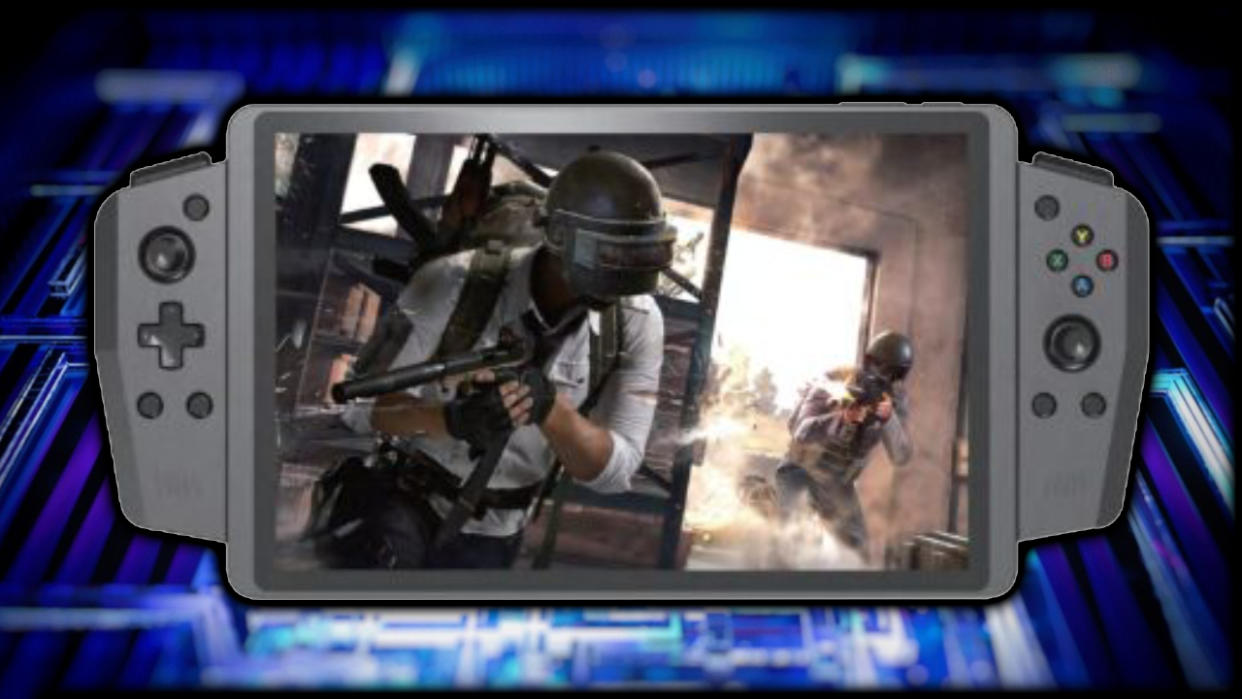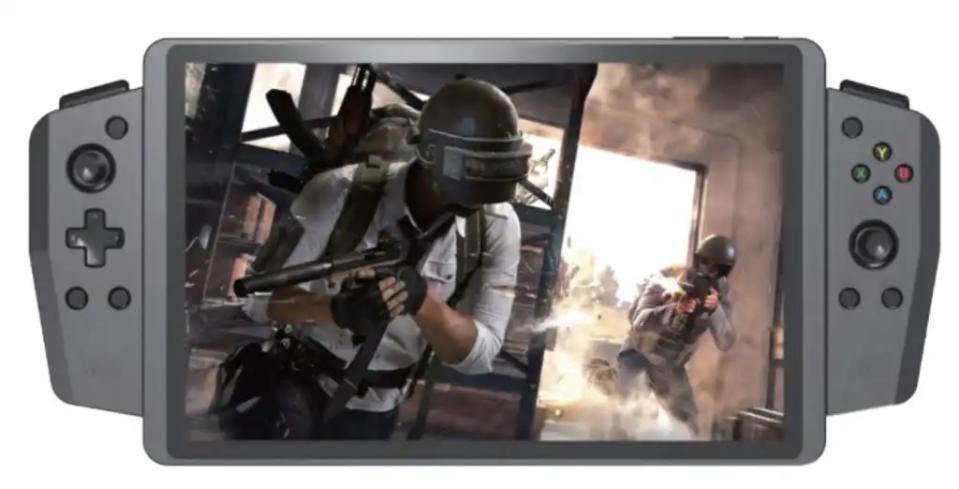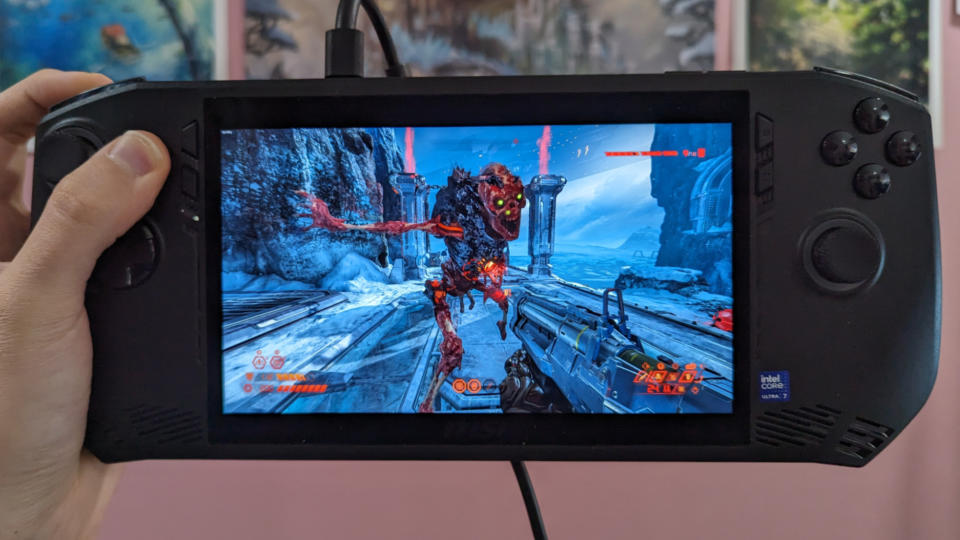Intel Lunar Lake challenges AMD in the gaming handheld space — but what's different?

Yesterday, it was revealed that held gaming PCs are being introduced to some all-new tech as the Chinese manufacturer Weibu is preparing to release a new console, the GP10, featuring a next-gen Intel chipset.
This makes the GP10 the first handheld console featuring Intel's upcoming Lunar Lake processors to be announced and an exciting development for this emerging category of gaming PCs.
Weibu GP10: What we know so far
The physical design of the Weubu GP10 is quite different from handheld gaming PCs that have come before it, it's unique in that the controllers are smaller than the full height of the 11-inch display itself.
Also, the 11-inch panel is larger than competitors like the ROG Ally's 7-inch display or the Legion Go's 8.8-inch screen. Considering this is Weibu's first-ever handheld gaming console, it's an interesting and bold choice for them to aim so much higher than its contemporaries.
We haven't necessarily seen great things from Intel's incorporation into gaming handhelds. The MSI Claw faced severe performance issues with its Intel Core Ultra 7 155H processor.
While that is partially being improved thanks to frequent software updates, it's still behind what AMD Ryzen's processors have achieved so far with other gaming handhelds.

Handheld gaming consoles running Windows 11 have been caught in a tug-of-war between AMD and Intel, with AMD's Ryzen Z1-series chips proving the most popular so far. The most popular options on the market, the Asus ROG Ally and Lenovo Legion Go, sport AMD Ryzen Z1 Extreme processors, and the Steam Deck also sports a custom AMD APU named Aerith, with the OLED variant's chip named Sephiroth.
Considering how many gaming handhelds stick to AMD for processing, it's fascinating to see a few steps outside of expectations and implement Intel power.
However, there's a serious concern regarding Intel's gaming capabilities. While there's no question that the company makes seriously powerful processors, they're not historically designed to run games singularly.
Weibu GP10: Specs
The world's first Intel Lunar Lake-powered gaming handheld appeared on Computex's website before being taken down, as spotted by PC World.
It's called the GP10 and is being designed by Weibu, featuring a massive 11-inch 1920 x 1200-pixel touchscreen at a 120Hz refresh rate, up to 64GB of LPDDR5 RAM, and a single M.2 slot with a maximum of 2TB of NVME 2280 SSD storage. Its port selection is a USB 4.0, USB Type-C, 3.5mm audio jack, and TransFlash card slot.
Most importantly, the GP10 is the first handheld gaming PC to utilize the upcoming Lunar Lake architecture, the second series of Intel Core Ultra chips, designed with up to 3 times the AI performance.
Should you consider an Intel gaming handheld?
Weibu's GP10 will be utilizing the next generation of Intel Core Ultra processors, but is it even worth getting excited about gaming with an Intel chip?
We tested the MSI Claw's Intel Core Ultra 7 155H against the Asus ROG Ally's AMD Ryzen Z1 Extreme and the differences in performance are staggering. Keep in mind that these poor results could be limited to MSI Claw's BIOS and how it meshes with the processor, but regardless, here are our findings.
While playing Elden Ring at 1080p on the Asus ROG Ally, it maintained around 50 to 60 frames per second on High. The MSI Claw was stuck at 30 to 35 fps on Low. Doom Eternal on High at 1080p on the Ally managed 60 to 70 fps, while the Claw stayed around 40 to 50 fps. Helldivers 2 on Low at 1080p was closer with the Ally getting 40 to 45 fps, while the Claw got 30 to 40 fps.

Outlook
Considering Weibu's G10 will be using the next-generation Intel Core Ultra processors, it will likely perform better. But even then, we'll probably be comparing it to AMD Ryzen's next big mobile processor.
It's hard for us not to be a little skeptical about Intel's gaming capabilities after our time with the Claw, and while we hope Weibu implements the hardware more seamlessly than MSI did, there's good reason to be cautious until people get their hands on it and can confirm more details.

